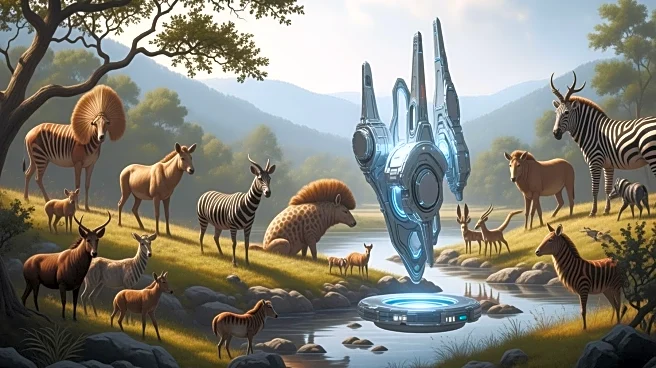What's Happening?
The International Union for Conservation of Nature (IUCN) has voted to allow genetic editing of wild animals, establishing a framework for evaluating genetic engineering projects. The decision supports
the cautious and ethical introduction of genetically modified organisms into the environment, with potential applications in disease suppression and climate change adaptation. The vote represents a landmark step in conservation efforts, allowing for new approaches to address environmental challenges.
Why It's Important?
The ability to genetically edit wild animals could revolutionize conservation strategies, offering new tools to combat diseases and adapt to climate change. This decision by the IUCN, a major force in conservation, could influence international policy and drive research in genetic engineering. The potential applications of this technology could lead to significant advancements in biodiversity preservation and ecosystem management.
What's Next?
Further research may focus on developing safe and effective methods for genetic editing in wild animals, addressing ethical and environmental concerns. Collaboration with conservation organizations and governments could lead to new policies and regulations governing the use of genetic engineering in conservation. The impact of this decision on global biodiversity and ecosystem health should be monitored.
Beyond the Headlines
The ethical implications of genetic editing in conservation should be considered, particularly in terms of potential risks and unintended consequences. The role of technology in shaping the future of conservation practices should be explored.












